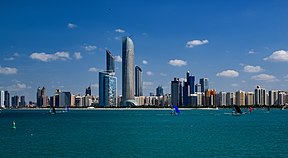In a significant move to tap into new domestic energy sources, the United Arab Emirates (UAE) national oil company, Abu Dhabi National Oil Company (ADNOC), awarded a hefty $1. 7 billion contract to ADNOC Drilling. This deal signifies a major step towards unlocking the UAE's unconventional energy resources.
ADNOC Drilling, a subsidiary of ADNOC, is tasked with utilizing its expertise in drilling and well completion to explore and develop these unconventional resources. The exact nature of these resources remains undisclosed, but industry insiders suggest they could include shale oil, tight gas, or even geothermal energy.
The UAE, a major oil producer, is keen to diversify its energy mix and lessen its dependence on conventional hydrocarbon resources. This shift is driven by a combination of factors, including the need to meet rising domestic energy demand, fluctuations in global oil prices, and the increasing urgency to address climate change.
Unlocking unconventional resources presents a unique set of challenges. These resources are often trapped in dense rock formations, requiring specialized drilling techniques and technologies to extract them efficiently. ADNOC Drilling's experience and fleet of advanced rigs are expected to be instrumental in overcoming these hurdles.
The financial heft of the contract underscores the UAE's commitment to this unconventional energy push. The $1. 7 billion investment signifies the government's belief in the potential of these resources to contribute significantly to the country's energy security in the coming decades.
While the UAE remains a major player in the global oil market, this new contract signals a strategic shift in its energy focus. By investing in unconventional resources, the UAE aims to ensure a long-term and sustainable energy future, reducing dependence on volatile fossil fuels and potentially creating new opportunities for economic growth.
The success of this endeavor will be closely monitored by other countries in the region. If the UAE can effectively extract and utilize unconventional resources, it could pave the way for similar developments across the Middle East, shaping the overall energy landscape of the region.

